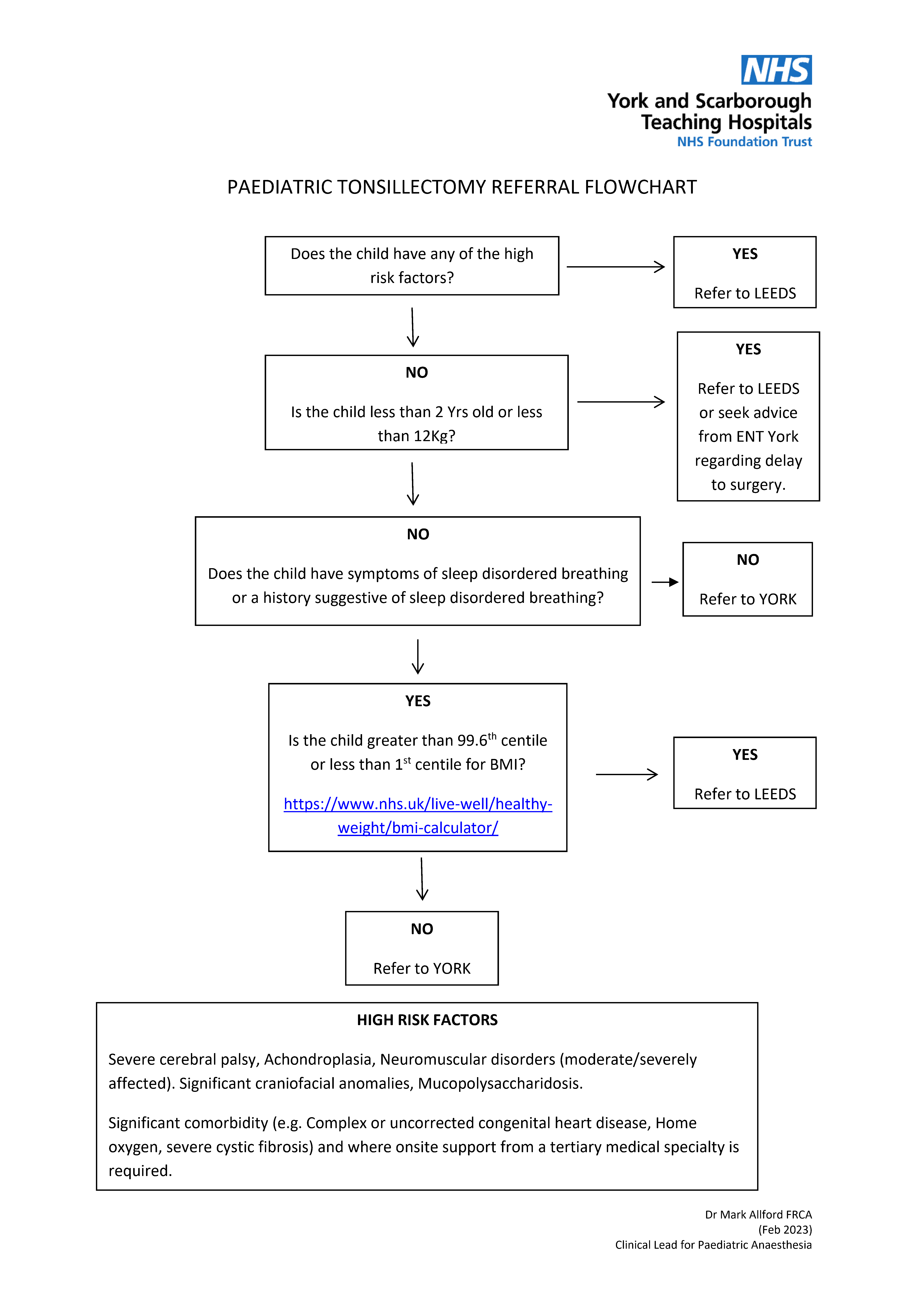Tonsillitis
Definition/Description
Systemic illness with marked dysphagia, pyrexia & lethargy - duration 5 –7 days. With swollen tonsils and often tonsillar exudate.
A similar, common and often parallel condition is acute pharyngitis in which lymphoid tissue of the posterior oropharyngeal wall may become inflamed
Red Flag Symptoms
- Unilateral enlargement with no signs of infection.
- Tonsillar cancer (mostly related to tobacco use but large growth seen in HPV related cancers)
- Unilateral signs
- Signs of obstruction
Guidelines on Management
Management
- Encourage smoking cessation
- Encourage weight loss (if appropriate)
- This is usually a self-limiting disease. 50% are thought to be viral and of course glandular fever is viral. Usually simple OTC the counter remedies are all that is required for pain relief.
- In the UK throat swabs are not usual practice.
- You can use the CENTOR criteria to make a judgement on whether to use antibiotics. You can also consider a delayed prescription. CENTOR was developed for pharyngitis.
The CENTOR criteria are:
One point added for each positive criterion: [1]
- History of fever
- Tonsillar exudates
- Tender anterior cervical adenopathy
- Absence of cough
The Modified CENTOR Criteria add the patient's age to the criteria: [2]
- Age <15 add 1 point
- Age >44 subtract 1 point
Guidelines for management state: [1]
- 0 or 1 points - No antibiotic or throat culture necessary (Risk of strep. infection <10%)
- 2 or 3 points – consider treating with an antibiotic (see below) - perhaps delayed. (Risk of strep. infection 32% if 3 criteria, 15% if 2)
- 4 or 5 points - Treat empirically with an antibiotic (Risk of strep. infection 56%)
- Consider a prolonged antibiotic treatment for 10 days. Please refer to North Yorkshire Antibiotic Guidance – acute sore throat.
- First line: Phenoxymethylpenicillin 500mg QDS for 10 days
- Alternative (penicillin allergy): Clarithromycin 250 – 500mg BD for 5 days
Referral Criteria/Information
If considering referral for a tonsillectomy please note this procedure is not routinely commissioned. Please see the Tonsillectomy Commissioning Statement for full referral criteria.
Indications for referral
- 2WR: Sinister red flag features with no signs of infection - to rule out malignancy - 2WR
- Acute: Peri-tonsillar abscess (Quinsy) - Key features are; swelling adjacent to tonsil (usually unilateral), change to voice (hot potato voice), Trismus (limitation to mouth opening).
- Usually needs draining - admit same day.
- Tonsillar enlargement causing acute upper airways obstruction - admit.
- Recurrent: Recurrent sore throat where the following documented evidence applies:
- 7 or more episodes of tonsillitis* in the last year OR
- 5 episodes per year in the preceding two years OR
- 3 episodes per year in the preceding three years AND there has been significant severe impact on quality of life indicated by documented evidence of absence from school/work; AND/OR failure to thrive
A frank discussion of the risk and benefits of the operation should be had. It is painful. People can continue with recurrent pharyngitis after a tonsillectomy. There is a 2% risk of post-op bleed that may need to go back to theatre and can be life threatening.
Information to include in referral letter
For recurrent tonsillitis
- Timing, number each year in the last few years of proven tonsillitis, effect on quality of life.
- Please comment on the discussion of risks and benefits you have had with the patient.
- Relevant past medical/surgical history.
- Current regular medication.
- BMI/Smoking status/Alcohol status/Employment
- MUST include a completed tonsillectomy referral form
Additional Resources & Reference
Patient information leaflets/ PDAs
References
- Acute Sore Throat NICE CKS 2015
- Respiratory Tract Infections (self-limiting): Prescribing Antibiotics (NICE 2008)
- North Yorkshire Antibiotic Guidance (May 2017)
- http://bestpractice.bmj.com/best-practice/monograph/598/diagnosis/criteria.html
- https://www.oxford.dec.nihr.ac.uk/reports-and-resources/horizon-scanning-reports/pointofcare-tests-for-group-a-streptococcus
Associated Policies
Specialties
Places covered by
- vale-of-york
Hospital Trusts
- york-and-scarborough-teaching-hospitals
